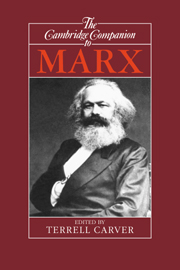7 - Political philosophy
Marx and radical democracy
Published online by Cambridge University Press: 28 May 2006
Summary
For many contemporary liberals, Anglo-American democracy seems unimpeachably the best political form. In contrast, most Marxian regimes and perhaps Marx himself seem deficient in defending democracy. Further, Marxian theory identifies oppressive ruling classes in all capitalist societies and calls for class struggle and violent revolution to achieve a more cooperative regime - theses that liberal social theories tend peremptorily to dismiss.
Yet Marxian theory also affirms ethical claims about the benefits of mutual recognition of persons and self-respect, realizing a general human capacity for moral personality and individuality, which are at the heart of liberalism. Thus the Communist Manifesto envisions a society in which “the free development of each is the condition for the free development of all.” In addition, Marx began his career as a radical democrat, seeking to spur a democratic revolution in Germany in 1848 as a prelude to "an immediately following proletarian one." His insights traced a path later to be followed by many Russian radical democrats, Chinese “new democrats,” and participants in the 1960s American Students for a Democratic Society. Marx's political theory aims to realize democracy's promise of equal liberty, now corrupted by the severe impact of capitalist wealth. His democratic insights shine through his political activity, his strategic and historical writings, and, even with attention to context, his economic theory.
- Type
- Chapter
- Information
- The Cambridge Companion to Marx , pp. 168 - 195Publisher: Cambridge University PressPrint publication year: 1991
- 6
- Cited by

